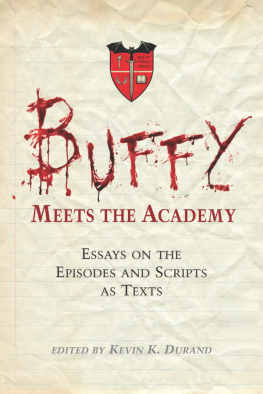
This book is dedicated to
Indigenous women, girls, and Two-Spirited people
yesterday, today, tomorrow.
We see you, we honor you, we love you.
Thank you.
Copyright 2018 by Andrea Warner
Foreword copyright 2018 by Joni Mitchell
18 19 20 21 22 5 4 3 2 1
All rights reserved. No part of this book may be reproduced, stored in a retrieval system or transmitted, in any form or by any means, without the prior written consent of the publisher or a license from The Canadian Copyright Licensing Agency (Access Copyright). For a copyright license, visit accesscopyright.ca or call toll free to 1-800-893-5777.
Greystone Books Ltd.
greystonebooks.com
Cataloguing data available from Library and Archives Canada
ISBN 978-1-77164-358-0 (cloth)
ISBN 978-1-77164-359-7 (epub)
Editing by Jennifer Croll
Copyediting by Susan Safyan
Proofreading by Jennifer Stewart
Jacket design by Will Brown
Text design by Nayeli Jimenez
Jacket photograph courtesy of Buffy Sainte-Marie
Permission for all lyrics quoted in this book provided by Buffy Sainte-Marie.
Greystone Books gratefully acknowledges the Musqueam, Squamish, and Tsleil-Waututh peoples on whose land our office is located.
Greystone Books thanks the Canada Council for the Arts, the British Columbia Arts Council, the Province of British Columbia through the Book Publishing Tax Credit, and the Government of Canada for supporting our publishing activities.

TABLE OF CONTENTS
FOREWORD
BY JONI MITCHELL

W HEN I STARTED out in the sixties there werent many women writing music, but Buffy Sainte-Marie was an exception to the rule. Whenever Buffy came through town I went down to the coffee house to hear her play. Her songs were so smart, so well-crafted, and her performances were stunning. She was different from the stereotypical music industry old boys club. When I moved to Toronto to pursue music, I stopped at the Mariposa Folk Festival on the way to see Buffy perform. A year later, I played that same festival, so you could say I followed in Buffys footsteps.
Buffy really helped me at the beginning: before I was well-known, she performed songs I wrote, bringing them to a wider audience, and she played my tape for anyone who would listen. Over the years since, Buffy and I have maintained a long-distance mutual respect. We have ties to Saskatchewan, but we share more than just a home: we both write songs with emotion, songs with a message. And to this day, we both walk our own path.
Ive watched Buffys long career with admiration, and Im honored to write this foreword to her authorized biography. Buffy Sainte-Marie is one of folk musics unsung heroes, and her inspirational life is a story that deserves to be read.
JONI MITCHELL, JUNE 2018
PROLOGUE

I TS ALMOST MIDNIGHT in Woodstock, New York. Less than an hour ago, a line of about 150 people stretched the length of the theaters foyer and bar, fans clutching everything from old vinyl and CDs to posters literally just torn off the wall, all waiting for their moment of communion with Buffy Sainte-Marie.
Shes spent her whole life hearing compliments from people about how much they loved her set at Woodstock back in the day. It makes her laugh every time. Tonight is actually Buffy Sainte-Maries first-ever Woodstock performance. She was never at the famous counterculture music festival that became one of the defining moments of the sixties. In fact, Sainte-Marie, the woman who wrote Universal Soldier, one of the most provocative and relevant protest anthems of the twentieth century, was never even invited to Woodstock.
It wasnt the first time, and it wouldnt be the last, that Sainte-Marie wasnt asked to the party. During her years in show business, she has lived simultaneously in the spotlight alongside musical giants such as Bob Dylan and Joan Baez and also very much at fames outer limits on the edges and precipices of the music industry. Although she wasnt always in the headlines, Sainte-Marie has been creating, challenging, and questioning during a career that has spanned more than fifty years. While history books and museums and governments and pop culture seemed intent on erasing Indigenous people, she persisted, and shes spent decades amplifying Indigenous voices, experiences, and resistance.
Through it all, shes been blacklisted by two American presidential administrations, and shes taken long breaks, some accidental and some chosen. Shes lived most of her life way up in the mountains of Hawaii, intentionally tucked away on a little farm. Shes as intensely private about her family and personal relationships as she is about her home, which is a self-created paradise with space for her studio. She spends a lot of time with her animals and in the garden, with dirt on her skin and neck-deep in nature. When she leaves home to go out on tour, she misses her cat; appropriately, the first new friend she makes here in Woodstock is a black-and-white kitty.
Short tours are Sainte-Maries preference. Long stretches on the road away from her home are too hard; she needs time to recharge, rest, and be out of the spotlight. The Woodstock stop is the second on a quick, three-day, East-Coast tour. Sainte-Marie has some connections to the venue, the historic and rustic Bearsville Theater, the brainchild of famed entrepreneur and music manager Albert Grossman, whose clients included Bob Dylan, Janis Joplin, The Band, and many moreand who is apparently buried out back. He founded a recording studio in this space in 1969; the theater was an extension of his dream, but he died suddenly in 1986 before he could make it a reality. Sally Grossman, Alberts wife, established the theater in 1989.
Sally has an enormous bouquet of flowers delivered to Sainte-Maries green room, and when she stops in to say hello, the two women embrace, though Sainte-Marie says she never knew Sally very well. In many ways, Albert and Sally Grossman were at the center of the scene, but Sainte-Marie never was.
In part, this was by her own design. Shes a self-described hermit and Goody Two-Shoes. Some people think shes a snob, but shes an artist with a mission quite different from the one pursued by musicians chasing the rock n roll trifecta of money, fame, and sex. She sees the worst parts of show business as the manifestation of greed and an abuse of poweran extension of entrepreneurial colonialism, a system that reinforces a hierarchy of bullies. Sainte-Marie uses the words bullying, racketeering, and colonialism almost interchangeably, since each thrives on hierarchy and fear, power and control, competition and toxic machismo.
The upside of show business for Buffy Sainte-Marie? Plane tickets. They have opened up the world to her in ways she could only dream of as a child. Those plane tickets have signified freedom and learning to Sainte-Marie ever since the release of her groundbreaking 1964 debut album, Its My Way!













